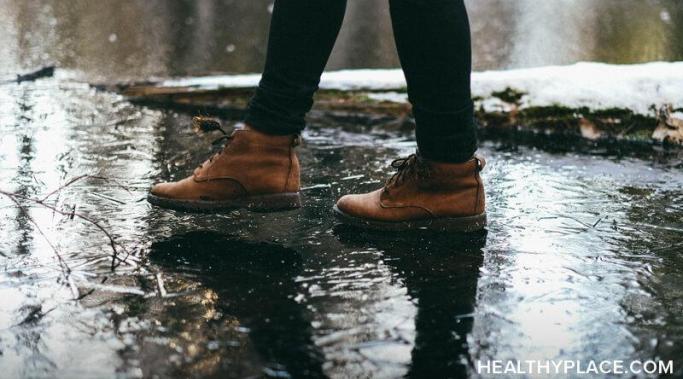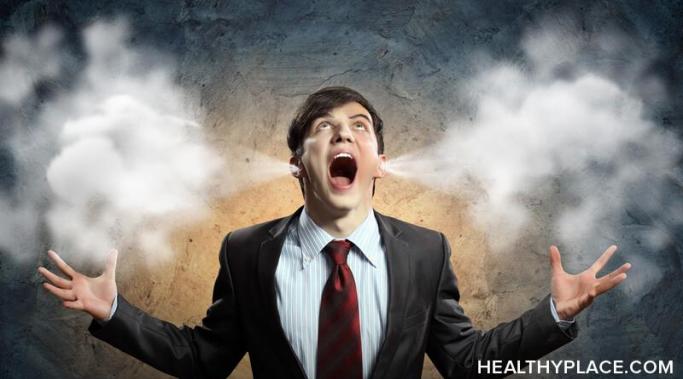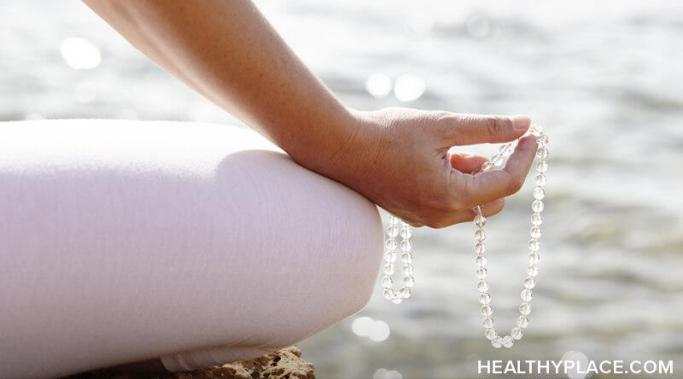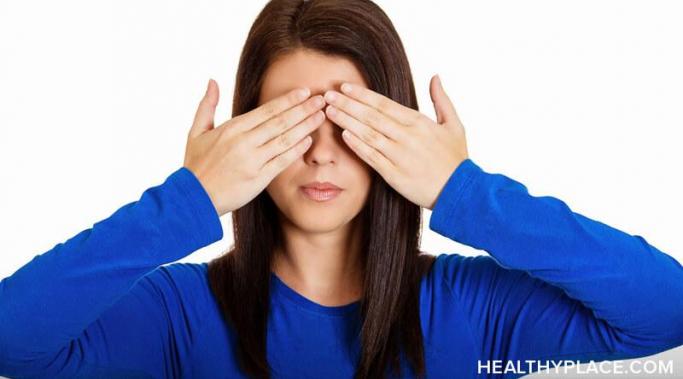"Everything happens for a reason" is a popular trope in the world of mental health recovery, but personally, I believe it's a lie, and here's why.
Anger and Mental Illness
For most of my childhood, I used reading to cope with trauma. This might not sound like a bad thing, and it wasn't entirely, but it came with a couple of big problems. Coping mechanisms develop as a way for us to protect ourselves, to survive despite threats to our wellbeing or identity. However, these coping mechanisms can get in the way of real connection.
Let's face it: there are a lot of aspects of mental illness that can be traumatic, and mental health misdiagnosis can also be traumatic. What happens when we don't even have the mental illness we think we have? I was diagnosed with bipolar disorder six years ago, found out that diagnosis was incorrect two years ago, and now a huge part of my recovery is dealing with the fallout and trauma of that misdiagnosis.
I have recently quit drinking. Drinking has negatively impacted my life for the past few months and I decided to stop a couple weeks ago. I am hoping this will put me on a path to a healthier life both mentally and physically.
I frequently struggle with my hot head, my anger, which feels a little embarrassing to admit. I'm a very anxious person -- something I address in a lot of my articles -- and my anxiety often manifests as anger. I try not to make my anger visible when I'm around others, but it's an all-consuming emotion that's hard to hide. I'm angry about wasting time and energy being so hot-headed, so I am searching for ways to ease my mind.
Emotional resilience is very important to a person's wellbeing. It is a way to describe how well you mentally bounce back from upsetting situations and events. Resilience can be crucial in mental illness recovery where stress can aggravate symptoms. Being able to better handle stress improves stability.
Mala beads may not help everyone, and, for me, dealing with my mental illness means medications come first. However, being open to learning additional methods to improve your life and functioning is also important. When you discover new and healthy ways to cope, go with it. Everyone is different, so use what works for you. I recently saw a post on Facebook about mala beads. I was intrigued and bought a necklace. I was excited when they arrived, and even though meditation had been difficult for me in the past, I was definitely willing to give it a try with my new mala beads.
Living with a mental illness leaves me with some painful and embarrassing memories I would rather not revisit. At the same time, they are a part of me I can’t escape. I want my daughter to know about all the twists and turns in my life that brought to where I am today as her mother, so I'll have to tell her some of my embarrassing memories in the future.
Did you know that the heat can affect psychiatric patients? Recently I moved into an apartment with no air conditioning--and Indianapolis has been hotter than usual. I noticed that my mental illness symptoms are worse than usual as well, so I researched how heat can affect psychiatric patients, both physically and mentally. I found that heat can affect psychiatric patients by interfering with their ability to sweat, increasing depressive symptoms, and increasing suicidal ideation.
Do you know how to express anger safely? Recently, my laptop charger stopped working. My father, an agricultural engineer with no computer expertise, attempted to fix it without my permission and after I warned him not to mess with it. Needless to say, he broke it even further and I'm now writing my posts at the library for the next few weeks. I was angry, but both parents told me to be quiet when I expressed said anger. This made me think of how to express anger safely, especially when you're not allowed to show any anger.









